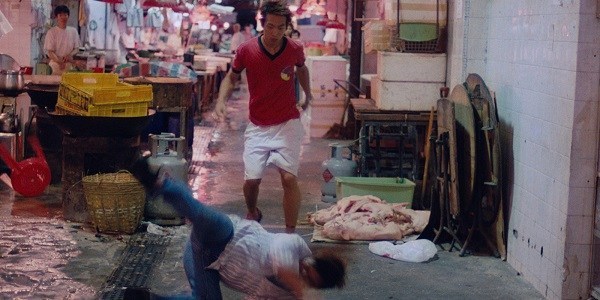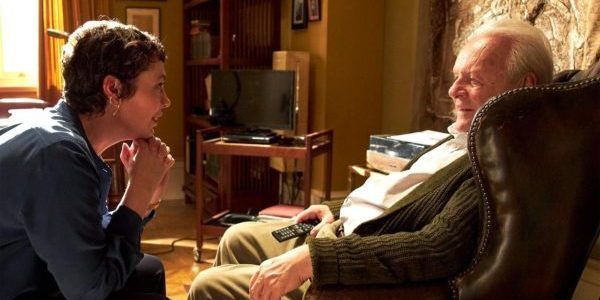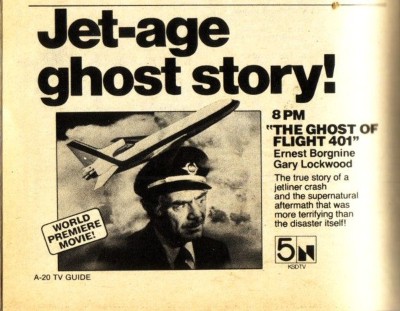Wham!

Whether you still know every word to “Wham Rap!” four decades later or only remember the British pop duo as “George Michael and that other guy,” you’ll find everything you want in the Netflix documentary “Wham!”
Full disclosure up front: I am very much in the former category, having listened to and loved Wham!’s music and Michael’s stratospheric solo career during a formative time in my adolescence. I even saw them in concert during the “Whamamerica!” tour on my 13th birthday—in a white, stretch limousine, no less. I can still smell the toxic fumes from the hair spray in my teased-up bangs.
But the film from documentarian Chris Smith (“Fyre,” “Operation Varsity Blues”) is a total blast, regardless of your level of fandom. On the most superficial level, it’s just a joy to relive this time of pop culture excess and sing along with these insanely catchy tunes. It’s hard to believe the duo was only around from 1982-86, with the two coming to stunning global prominence at age 20 with such perky hits as “Young Guns” and “Club Tropicana.” The shorts were short, the hair was high, and the energy was knowingly, playfully hedonistic. Michael and Andrew Ridgeley were beautiful, and their music was effervescent; even the early songs with a social conscience were made for the dance floor.
Beneath their tanned, heartthrob exteriors, though, the two had a deep, brotherly connection from childhood and an unexpectedly evolving power dynamic. Ridgeley’s mum maintained meticulous scrapbooks documenting Wham!’s meteoric rise, which provide much of the substance here, along with never-before-seen footage and unheard audio from the personal archives of both men. Michael died on Christmas Day 2016 at age 53; Ridgeley has mostly lived a quiet life outside the spotlight for the last several years (although he did have a cameo in the 2019 romantic comedy “Last Christmas”). Hearing them speak fondly of their youth, their early days as struggling artists, and the thrills and perils of dizzying success provides a feeling of immediacy as if we’re eavesdropping on a conversation between two old pals who haven’t caught up with each other in a while. If there is any deficiency here, it’s that the movie just stops when Wham! ends; a title card briefly reminds us of Michael’s subsequent superstardom, but Smith offers nothing of the sort about Ridgeley’s post-Wham! career.
The friendship endured, and that’s much of what makes “Wham!” stand out from other music documentaries: the warmth, the fondness, and the absence of the kinds of creative struggles and egotism that so often turn these tales into cliches. George Michael and Andrew Ridgeley met at school when they were 11 and 12 years old, respectively. Michael (who then went by his given name, Georgios Panayiotou) was the new kid in class who just happened to be assigned a seat next to Ridgeley. A shared love of music quickly became their bond; Ridgeley refers to Michael by the nickname he gave him, Yog, throughout the film, which adds an element of sweetness. What’s interesting is that Ridgeley was the dominant one in the beginning—he was more confident and stylish, and he had the vision for what Wham! ultimately would become. Michael, while obviously talented at a young age, was a little chubby and awkward. And despite the ass-shaking bravado he exuded in the group’s videos and concert performances, he had difficulty thinking of himself as a sex symbol.
A lot of that probably has to do with the fact that he was a closeted gay man singing songs about women he longed for, women who’d wronged him, women who were using him for his credit cards to go on shopping sprees. The recent Max documentary “Rock Hudson: All That Heaven Allowed” similarly explores this topic: the need these famous men felt to maintain the façade of heterosexuality at a time when coming out would have destroyed their careers. One of the more touching moments in “Wham!” is when Michael comes out to his best pal in Ibiza in the early ‘80s, and Ridgeley is nothing but loving and supportive. And as we see here, as Michael reveals his abilities as a vivid, prolific songwriter, he weaves traces of his true self into his songs. “Nothing Looks the Same in the Light,” off their 1983 debut album Fantastic, is about his first gay encounter.
Here’s where we see the balance of power shift in fascinating ways. The recording of their suy torch song “Careless Whisper” teaches Michael that he must produce the group’s music if he wants it done correctly. His need for control and his driving obsession with chart success inspired him to write and produce Wham!’s second album, Make It Big, which they happened to record at the studio at Miraval, the French winery Brad Pitt and Angelina Jolie are currently fighting over in their divorce dispute. (The origin of the song from that album that’s arguably their best-known hit, “Wake Me Up Before You Go Go,” provides an amusing anecdote.)
“Wham!” depicts Ridgeley as being totally fine with taking a step back and letting his best friend’s talents shine through. But he remains a confident, crucial contributor to the duo’s image, especially as Michael begins having an existential crisis: “Oh my God, I’m a massive star, and I’m gay,” Michael says in voiceover. The fact that they can rely on each other is essential as they become hugely popular worldwide, performing as the first Western act ever in China before taking on the United States in a 1985 tour. Around this time, Michael dazzles with his soulful vocals in a performance of “Don’t Let the Sun Go Down on Me” alongside his idol, Elton John, at Live Aid. His ascendence is undeniable, but as Ridgeley wisely puts it, “Wham! was never going to be middle-aged.”
That’s what provides much of the movie’s emotion: the fact that it is this wistful time capsule, a fleeting moment of infectious happiness. Drinks are free. Fun and sunshine. Who doesn’t want to be a part of that?
On Netflix now.





